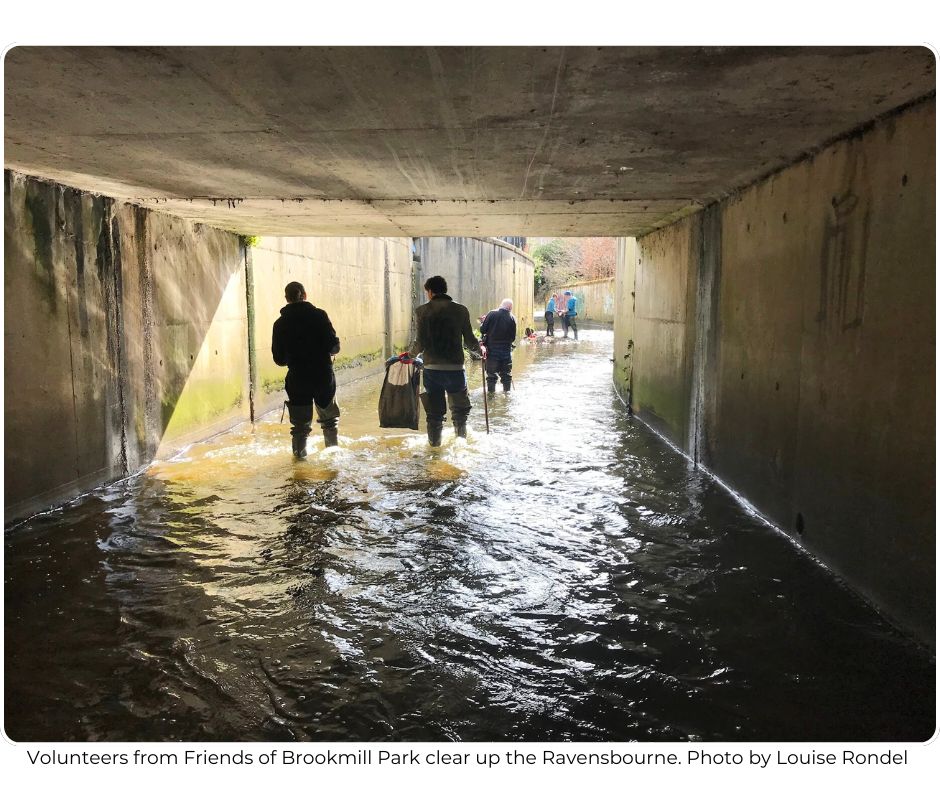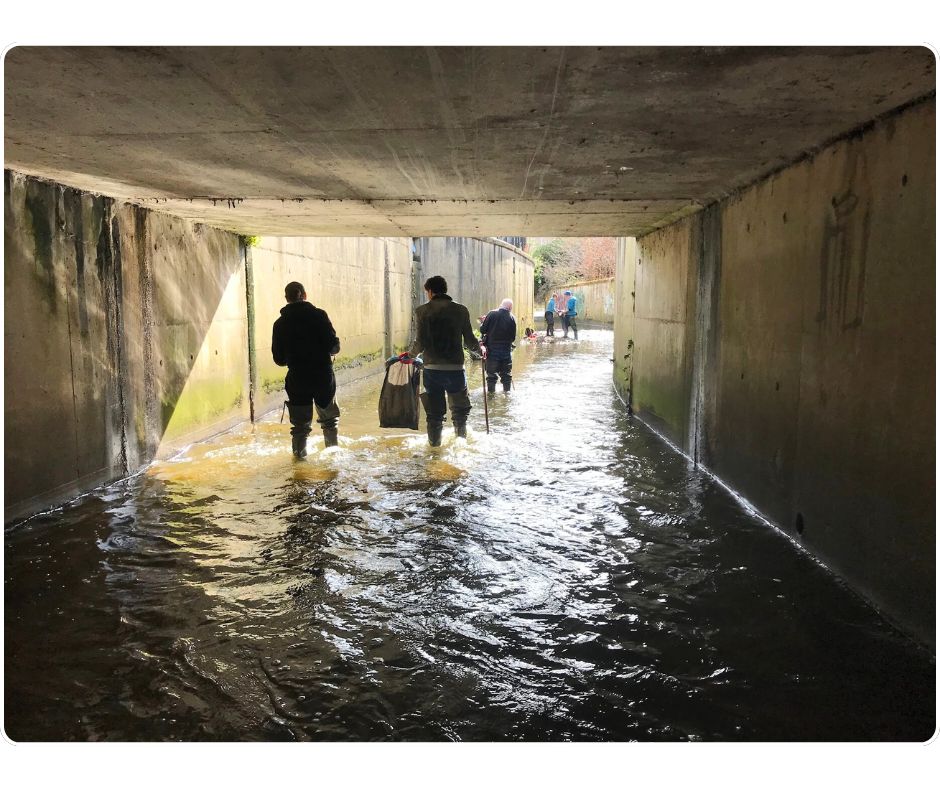For our latest blog post, we've welcomed a local researcher from Goldsmiths University, Emma Jackson, to write all about her current project and working with us and other local partners...
For the last year, Louise Rondel and I have been spending time talking and walking Lewisham’s rivers with those who work, live and play alongside and in them. And also, crucially, with those who play a key role in maintaining and caring for the rivers and their ecosystems – such as the staff at the Creekside Discovery Centre.
Our project ‘Place-making and the Rivers of Lewisham’, funded by the Goldsmiths Strategic Research Fund, investigates how the Borough’s three rivers – the Pool, the Ravensbourne and the Quaggy – feature in planning and policy documents, how people interact with the rivers, and the synergies, conflicts and potential opportunities that arise from these different ways of understanding and living with rivers.

So, why are urban sociologists interested in Lewisham’s rivers? Firstly, many of London’s rivers are submerged. They have been covered over and some have been incorporated into the sewage system. And while mythology abounds about London’s ‘lost rivers’, Lewisham’s rivers are unusual in that long stretches are uncovered. This means they present opportunities for gaining insights into how smaller urban rivers impact on people’s lives and how the everyday practices of residents and of larger scale projects impact on the rivers.
Secondly, Lewisham has responded to these rivers in various ways over time, which also makes it a useful case study to learn from. Following the rivers, we find stretches of concrete channels, legacies of the 1960s approach to rivers. But also stretches like the River Pool Linear Park, Manor House Gardens, Ladywell Fields or Brookmill Park, where people can get closer to the river. And of course, there is Deptford Creek, surrounded by new high rise developments and the remnants of the industrial past and where the connection to the Thames and the North Sea can be keenly felt.
Thirdly, talking with our research partners – local rivers’ groups Quaggy Waterways Action Group, Friends of the River Pool and Waterlink Way of Life – we found an abundance of ecological expertise on the river spaces but felt that we could make a contribution through examining the social life of the river.

Our research finds that these different ways of interacting with rivers – from the interventions of policy initiatives, forms of play, volunteer work, to name a few – feed into the shaping of the city in multiple ways. This is important in a context where approaches to living with rivers – including the need to manage flood risk in a time of climate crisis – are in the spotlight.
We are launching our findings on 29th June in an event that takes place across Lewisham. In the morning we are putting on two soundwalks. We have gathered stories from those we have interviewed and also worked with sound recordist Konstantinos Damianakis who has produced a series of evocative field recordings of riverside places that also playfully interact with these environments. We have put these together into two soundwalks that we will lead along the two stretches of river, Lower Sydenham to Catford Bridge and Lewisham to Deptford. From there we will move to the Creekside Discovery Centre, where we will provide lunch for the hungry walkers, and distribute and discuss the report. We hope you will join us!
Book for Place-Making and the Rivers of Lewisham Launch here
Dr Emma Jackson is a Reader in Sociology and the Director of the Centre for Urban and Community Research at Goldsmiths, University of London
< Summer Family Fun! Sue Godfrey Nature Park 40th Anniversary Fete >

